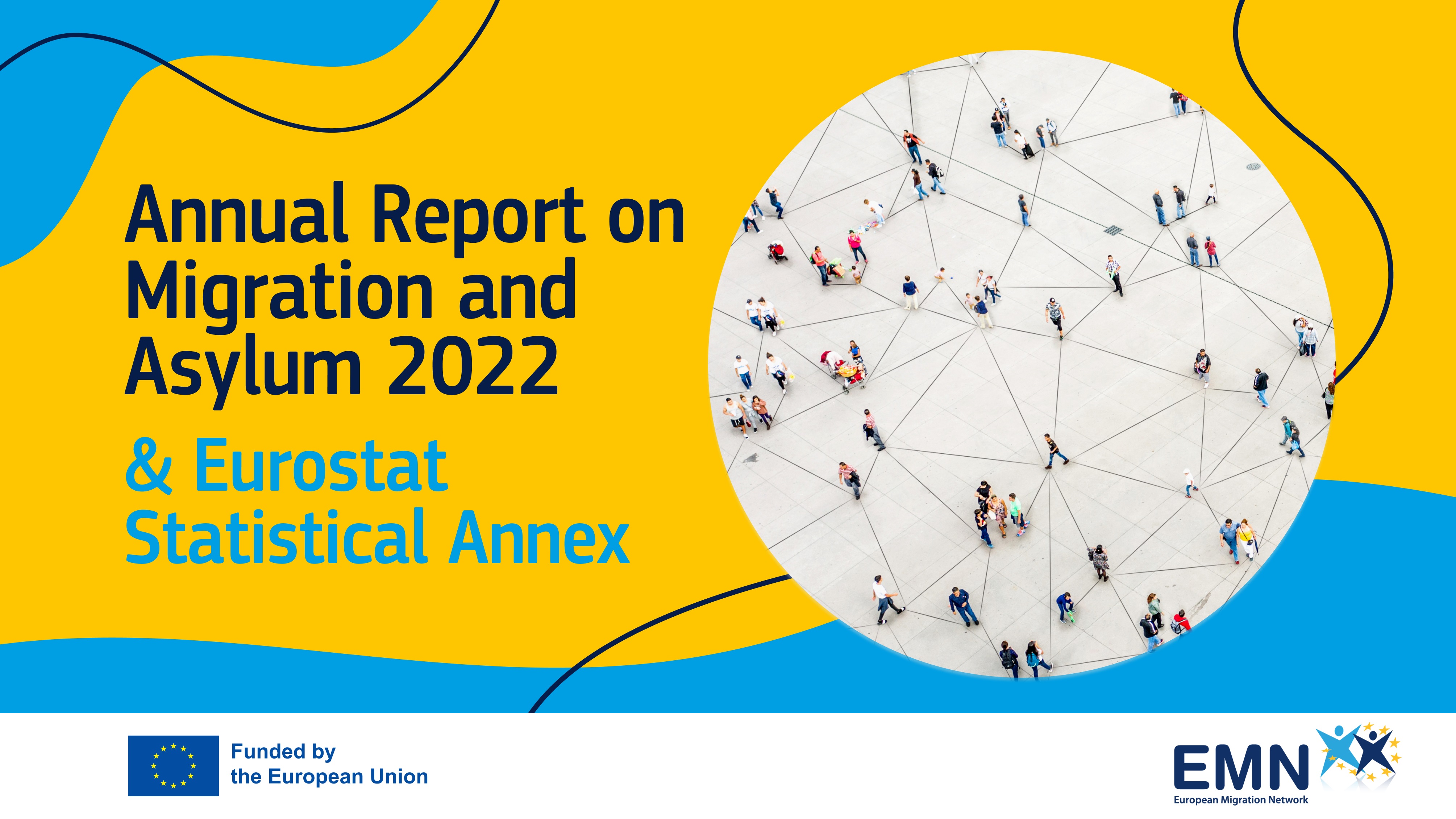
The European Migration Network (EMN) Annual Report on Migration and Asylum 2022 provides a comprehensive overview of developments across a wide range of migration and asylum topics in the EU Member States, Norway, Georgia, Republic of Moldova and Armenia in 2022.
Following the invasion of Ukraine by Russia on 24 February 2022, the European Migration Network Member and Observer Countries focused their responses on providing safe shelter to people from Ukraine fleeing the war. European Union Member States implemented the Temporary Protection Directive, which was activated on 4 March 2022 for the first time since its adoption in 2001. In 2022, a total of 4 331 200 temporary protection statuses were granted by EU Member States.
2022 was the first post-COVID-19 pandemic year, as the spread of the virus was less severe compared to 2020 and 2021. This resulted in the lifting of restrictions at borders, as well as for return operations. Extensions of stay on Member States’ territory due to travel restrictions were also phased out during the year. Pressures at external borders from the Mediterranean, Western Balkan and Eastern routes continued to impact on the migration and asylum systems of EMN Member Countries in 2022. The number of irregular border crossings increased noticeably from 2021, and the resulting security risks prompted several EU Member States to reintroduce internal border controls. The rise in asylum applications put pressure on the asylum systems of Member States and Norway. This was the first increase since 2019, as applications had dipped during the COVID-19 pandemic period. Syria and Afghanistan were once again the top nationalities of asylum applicants in the 27 EU Member States and Norway, as had been the case since 2018.
2022 saw a number of developments in solidarity and cooperation measures on migration in the EU. Key developments included the adoption of a joint roadmap between the European Parliament and five rotating Presidencies of the Council of the EU to work together to adopt the reform of the EU migration and asylum legislative framework before the 2024 EU elections, and a Declaration on Solidarity establishing a Voluntary Solidarity Mechanism, endorsed by 23 European countries to support cooperation with the EU Member States most affected by migratory flows in the Mediterranean. Croatia acceded to the Schengen area, with full application of the acquis and removal of internal border controls.
Attracting and retaining talent, including qualified workers to meet labour market needs, and addressing demographic change continued to be a significant priority at EU and national level. In April 2022, the European Commission adopted an ambitious policy for legal migration, the ‘Skills and Talents Package’ to attract talent and facilitate the EU’s transition to a green and digital economy.
